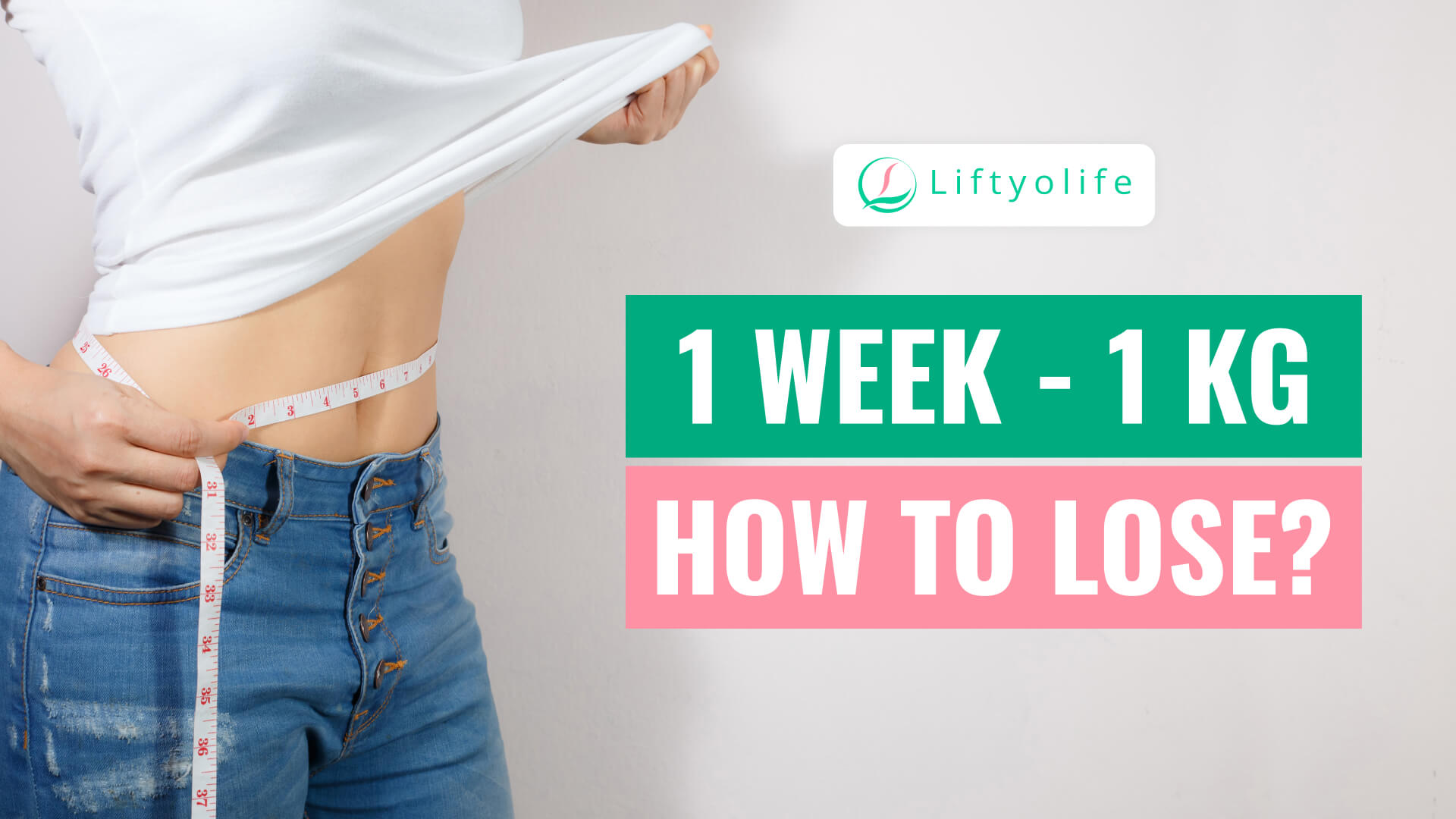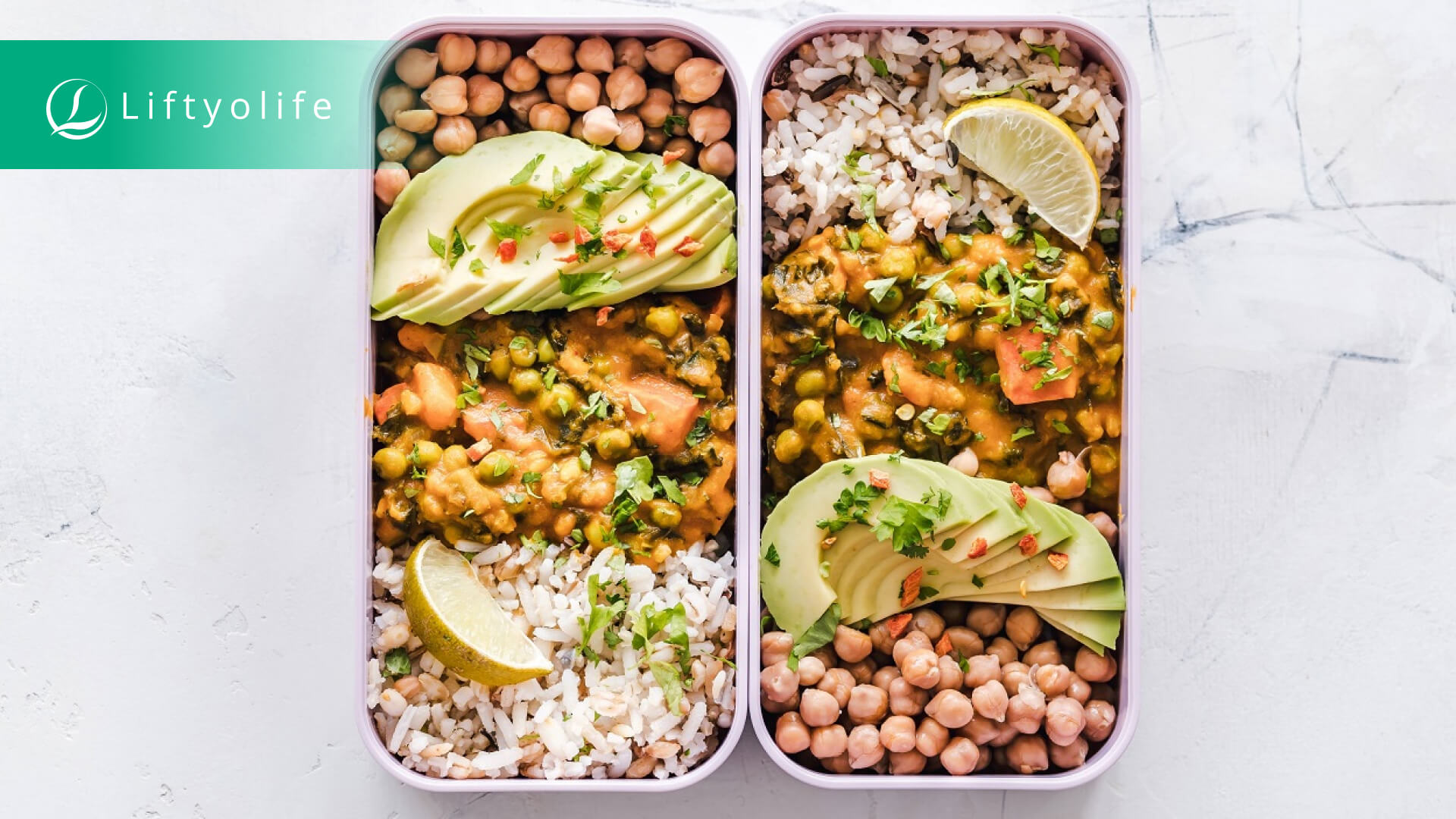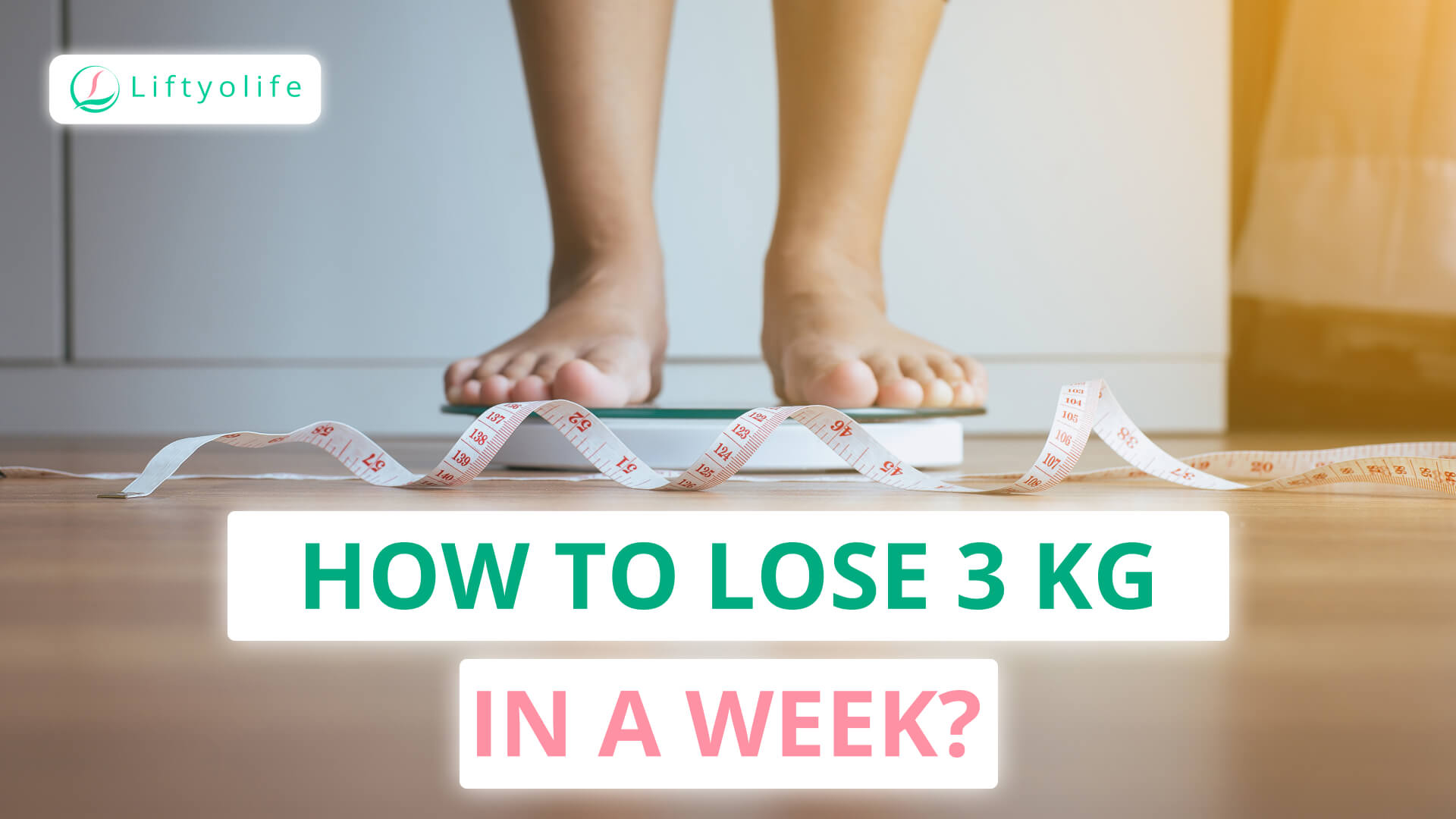How To Lose 1 Kg Per Week?

How to lose 1 kg per week? Losing weight does not happen overnight because everything takes time to process. Be patient and take it one step at a time, and you will see great results. Losing 1 kg per week is not difficult. This article will guide you to the start of your challenging journey. Liftyolife will assist you in making your dream a reality.
1. Is losing 1 kg a week healthy?
Many nutritionists contend that losing 1–2 pounds (0.45–0.9 kg) per week is healthy and safe (1). This means that it’s good to aim for a weekly weight loss of 1 to 2 pounds (0.5 to 1 kg).
To lose these pounds, you should burn 500 to 1,000 calories more than you consume each day, accomplished by a lower calorie diet and regular physical activity. However, losing 1kg per week isn’t going to be suitable for everyone – you might not have that much excess fat to lose in the first place and thus end up underweight.
Everybody is unique, and your results will be influenced by your starting weight, nutrition, activity level, sleep habits, and other factors such as stress and hormonal fluctuations. If you truly want to lose weight, begin your journey and stick to it. Furthermore, keep in mind that not every week will be the same, and try not to become overly concerned.
2. How many calories do you need to burn to lose 1kg?
Because 1kg of fat contains 7,700 calories, you must burn 7,700 calories to lose 1kg of fat. You need to create a 7,700 calorie deficit over the week or a 1,000 calorie deficit per day if you want to lose that kilogram. In theory, you could do it in a day if you did not eat anything and walk a lot, but that would not be a fun day. A more sensible approach would be to spread out those 7,700 calories over a longer time to make the fat loss process much more manageable. Ideally, you should create a 1,000 calories deficit per day.

How many calories do you need to burn to lose 1kg?
3. 15+ tips on how to lose 1 kg per week?
3.1. Change your bedtime routine
Good sleep will be a powerful weapon to help you lose weight successfully. Getting 7 to 8 hours of sleep per night will help the body release the hormone Leptin from fat cells, which helps suppress hunger and signals a feeling of fullness.
Therefore, if you get enough sleep, you will have fewer snack cravings and will be less inclined to eat unhealthy foods such as processed foods, canned foods, and fatty foods. You will then be able to lose weight more effectively. Furthermore, after a good night’s sleep, you wake up with more energy to do many things, including physical activity.
3.2. Change your mindset
The keys to a happy life are joy and optimism. Maintain a positive attitude and an open mind as much as possible. Negative thoughts will slow down your body and cause many activities to be postponed.
Furthermore, when you are stressed, your body produces numerous stress hormones such as cortisol, adrenaline, and norepinephrine. Cortisol suppresses the immune system, impairs digestion, raises blood pressure, and increases fat storage.
On the other hand, negative emotions will inevitably appear as a part of your life because you are human. Appreciate and accept your feelings; attempting to push them away will only make you feel more tired and stressed. If you miss a cheat meal, don’t feel bad; instead, try to work out and restart your weight loss journey positively and enjoyably.
3.3. Cut out (or limit) soft drinks
These types of drinks have too much sugar in them. The presence of sugar in these beverages has never been recommended as healthy. Sweeteners only add flavor, but they also contain empty calories absorbed directly by the body without digestion (the body does not need the energy to digest them), resulting in overabsorption.
As a result, restricting sugary drinks is associated with weight loss and appears to have a greater impact on weight than restricting solid foods. Changing from tap water to mineral water or even soda water can make a significant difference. If cutting out all soft drinks is too tricky, you can reduce your intake from 1-2 cokes per day to 1-2 cokes per week. You will not believe how much of a difference it has made.
3.4. Drink more water
Water is not only good for your health to rid your body of toxins, but it is also necessary for losing weight. Drink water even if you aren’t thirsty; aim for 2 liters of water per day to improve your health and weight loss. However, drinking it frequently can be difficult. Carrying a water bottle around with you is a good way to get your daily intake.

Drink more water
3.5. Eat less, more often
When depriving your body of food for an extended period, it will tend to overeat to compensate for the next meal. When you eat too much at one meal, your energy storage capacity increases, which leads to obesity; therefore, eat healthy, light meals every 2-3 hours to keep the metabolism running smoothly and efficiently. This is an intelligent way to manage your weight. Many gym-goers report that switching to six smaller meals per day has helped them stay fuller for longer and feel more energized throughout the day.
3.6. Eliminate the temptation
Temptation can destroy your determination to lose weight in an instant. Don’t let it derail your incredible weight-loss journey. Let’s begin by getting rid of the sweets and snacks in the pantry. Do everything to reduce the number of foods you put in your mouth as much as possible.
3.7. Get standing
Instead of sitting in one place for 8 hours at work, which allows fat to quickly accumulate in the thighs and waist (as is common among office workers), try to stand or walk as much as possible to limit the opportunity to accumulate excess fat
3.8. Increasing your calorie burn with exercise
Aside from a healthy diet, exercise accounts for 50% of the chance of success in losing weight. In other words, physical activity is the other half of the weight-loss equation because every “extra” calorie you burn plays a role in your calorie deficit.
Lose weight in a natural, healthy, and safe way by incorporating aerobic activity and weight lifting into your workout routine. Aerobic exercise expends a large number of calories. Weightlifting develops strong, lean muscle, which burns more calories throughout the day, effectively increasing your metabolism and making weight loss easier.
3.9. Organize your meals
This will provide you with numerous advantages, including the following:
- Calculation of each serving’s sufficient calorie intake,
- Save time and money on preparing and cooking,
- Eat healthy meals and limit your intake of fast food.
You can prepare double portions of meals and freeze them for evenings when you are too tired to cook.

Organize your meals
3.10. Reducing your calorie intake with a diet
If you find it difficult to expend energy, you may consider lowering your calorie intake. Fill your plate with lean proteins and fibrous vegetables to help you feel full without adding many calories. Furthermore, protein and fiber both help you feel fuller. Make a veggie smoothie for breakfast, or serve an omelet stuffed with onions, mushrooms, spinach, and tomatoes to get your protein and vegetables in.
3.11. Setting your calorie goals
Setting a goal for yourself will make things easier. Furthermore, having a specific goal can help you stay motivated and persistent in achieving it. A pound of fat corresponds to approximately 3,500 calories, so losing a kilogram of weight per week entails removing 7,700 calories from your diet each week – or 1,100 calories per day. Set these goals and stick to them.
3.12. Start the day with a smoothie
Rather than skipping breakfast, start the day with a smoothie. A smoothie in the morning is a great way to start the day. It will provide more fiber, keep you fuller for longer, and help you avoid overeating that day. Smoothies can also help settle your stomach after a long night of fasting.

Start the day with a smoothie
3.13. Swap to herbal teas
Starting the day with herbal tea or water instead of coffee has made a significant difference. You feel energized in the afternoon instead of sluggish after switching to green or peppermint tea. Furthermore, incorporating herbal teas made a huge difference in the bloating and, as a result, made you feel better about yourself.
3.14. Think small
Do you want to lose 1 kg per week? Make a change from today. The first thing is to change all of your kitchen utensils. A portion control bowl and a small plate can help you easily track how much you are eating.
3.15. Track your day
Keep a record and track of all your actions that may impact your weight. Stay your eyes on everything you’ve eaten, drank, and exercised (what exercise, how long, etc.). This keeps your process on track, and if something goes wrong, you can fix it quickly.
4. When should you eat to lose 1 kg a week?
Morning
- After waking up: Drink a bottle of cold water after you wake up. Your body must expend additional energy to bring the cold water to your core temperature, facilitating weight loss.
- Before breakfast: Exercise at this time is ideal because you can burn nearly 20% more calories if you exercise while ‘fasted.’ Because your blood sugar levels are low, your body must use fat as fuel to keep your muscles working.
- Breakfast: Break your fast with lean protein – whether a turkey breast or a steak – is the key to burning more fat and getting you closer to losing 1kg in a week. Furthermore, eating high-protein breakfast foods like meat and nuts resulted in a greater sense of fullness. Pair a turkey breast with a handful of almonds, which are high in monounsaturated fat and aids in burning belly fat.
Afternoon
- Lunch: Lunch may also be the best meal to take your probiotic with. Taking your probiotic at the midpoint of your meal will also increase satiety and the sensation of fullness.
- Mid-afternoon: Green tea, which is high in the plant compound ECGC, can help you burn fat. Don’t forget to drink one cup of green tea for an afternoon tea break.
Evening
- Dinner: Eat dinner early, then fast for 14 hours until breakfast the next day to maximize fat loss.
- After dinner: After dinner, a 10-minute walk may be beneficial because light post-meal exercise can lower blood sugar and prevent fat storage.
- Bedtime: To keep cortisol levels in check, try to get at least seven hours of sleep per night.
How to lose 1kg per week? Losing 1 kg per week is not out of reach if you strictly adhere to a suitable exercise strategy and go on a diet. On the other hand, bear in mind that you should seek the advice of your doctor or a health care provider before embarking on your weight loss journey. Liftyolife will be there to motivate and inspire you.
==> Read More:






